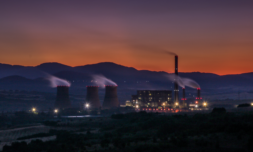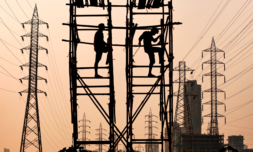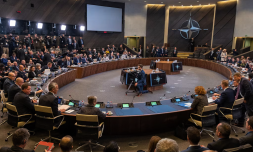When it comes to the insidious techniques that the industry is using to greenwash its image, undermine climate negotiations, and delay progress, there are many. Here, we break down astroturfing and corporate personhood, highlighting how they relate to this year’s COP28 summit.
‘What’s the point of our climate summits if they’re being undermined by a shadow network of fossil fuel lobbying?’
This question, asked by a campaigner to Global Citizen, is one that’s resounded among activists since it was announced earlier this year that oil tycoon Sultan Al Jaber would be leading COP28 in the UAE.
Why? Because despite how urgently we need to reduce our greenhouse gas emissions to avoid a total catastrophe – a matter that will, yet again, be assessed at the UN’s annual conference – fossil fuels still account for 82% of the world’s energy supply, even though it’s common knowledge that coal, oil, and gas are by far the largest contributors to the environmental emergency.
But we aren’t to blame. For decades, fossil fuel giants have been infiltrating policymaking discussions and holding back progress towards achieving a carbon-free future.
Time and time again they’ve prioritised income over change, using a series of insidious techniques to undermine our efforts to save the planet.
Throughout COP28, we’ll be breaking down fourteen of them to raise awareness about how the industry’s playbook continues to play us all.
What is astroturfing and why should you be clued up?
A lot like its namesake, astroturfing is the process of creating fake ‘grassroots’ organisations.
The idea behind these faux ground-up groups – which are funded by vastly wealthy Big Oil, Big Coal, and Big Gas companies – is to present opinions as being uninvolved with the big-business agenda they often originate from, attempting to discreetly persuade the public that these views are credible.
With the main goal to simulate public disdain, the fossil fuel industry uses this tactic to give the illusion that far more people oppose forward-looking solutions, such as clean technologies, than actually do.
Their carefully-crafted propaganda is designed to control the individual that engages with it by blurring the lines between truth and lies, all the while preserving fossil fuel infrastructure and sales.
Research has shown that people sourcing their information from websites employing this technique are more uncertain about what causes global warming and how responsible humans are for the crisis.
And not only does it confuse us (particularly as social media has dangerously given rise to deception and dissemination) but it dampens our trust in real lobbying groups. The campaign Big Green Radicals, which paints large environmental organisations as corrupt and hypocritical, is an example of this.












 1/There is a large, multilingual astroturfing effort around
1/There is a large, multilingual astroturfing effort around 







